 Today, the UGA Alumni Association is honored to recognize those Bulldogs who have served in the military. To highlight how UGA serves its student veteran population, Assistant Director of Communications Jamie Lewis (AB ’12, AB ’12) interviewed Ted Barco, the founding director of UGA’s Student Veterans Resource Center(SVRC).
Today, the UGA Alumni Association is honored to recognize those Bulldogs who have served in the military. To highlight how UGA serves its student veteran population, Assistant Director of Communications Jamie Lewis (AB ’12, AB ’12) interviewed Ted Barco, the founding director of UGA’s Student Veterans Resource Center(SVRC).
Tell me about the history and mission of the SVRC.
The SVRC was established in 2013 and is organized under the Office of the Dean of Students. Its mission is to serve as the go-to location for sensemaking, wayfinding and entry into an array of services provided by UGA and the surrounding community. We facilitate opportunities that enhance a student veteran’s ability to transition, perform, persist, graduate, and access a meaningful career path. The SVRC does this through a variety of methods and activities as shown in our operating model.
.png)
What are some barriers to success that veterans might encounter in school and how does the work of the SVRC assist in breaking down those barriers?
According to the Veterans Administration, only 48 percent of student veterans graduate from public universities and those that do take up to two years longer than traditional students. As non-traditional students, veterans face a myriad of obstacles to their success. Student veterans are:
- More likely to be a first-generation college student
- Less likely to participate in co-curricular activities
- More likely to have responsibilities outside the classroom
- Less likely to participate in experiential learning opportunities
- More likely than not to run out of VA benefits before they graduate
- More likely to perceive themselves to be more self-reliant than traditional students
The confluence of these factors creates a wickedly complex set of challenges to student veteran success that cannot be untangled by traditional stove-piped approaches.
.jpg)
How many student veterans do we have at UGA and what are the services they expect the SVRC to provide?
Currently, we have more than 200 student veterans at UGA. The SVRC balances its role of being both a service provider and a facilitator of services. As a service provider, we offer specialized veterans orientation and activities, mentoring programs, work-study opportunities, awards, scholarships and more. As a facilitator of services, the SVRC offers connections to most services provided on campus and off, including admissions, financial aid, health care and career services.
.jpg)
UGA student veterans with President Jere W. Morehead (JD ’80)
How does private support help the SVRC?
Financial support directly helps our student veterans succeed at UGA and beyond. About 65 percent of our student veterans are former enlisted service members who are using limited-duration VA educational benefits to pursue their degrees. About half support families while attending school, and a similar number work full- and part-time jobs. Many face the daunting challenge of exhausting their VA benefits before completing a degree, or managing an insufficient level of benefits that may not cover the cost of attending UGA. Others struggle to find a viable career path that includes financial aid, mentoring and job placement. Private support, which can also mean a donation of time, is able to bridge the gap created by these situations.
In response to these challenges, we are establishing a two-tier approach to private support. The first is financial. The SVRC offers many opportunities for naming rights of key SVRC spaces, establishment of scholarsips/programs and one-time awards, or contributions to support the SVRC’s emergency and/or operating funds. The second is experiential, which includes connecting students to meaningful summer internships and full-time career opportunities.
The SVRC recognizes every donor, regardless of the size of their gift, on a wall outside its facility. We can effectively leverage contributions ranging from $100 to $1,000,000 to assist in the success of our student veterans.
Finally, what are you most proud of about the SVRC and its students?
To their credit, our military-affiliated population competes on par with the general UGA population in terms of course load, GPA, completion rates and graduation rates.
In the last two years, UGA has been nationally recognized as Best for Vets, Military Friendly, and a Top Military College/University. This fall, for the first time, UGA gained national recognition as being in the top 15 percent of the nation’s student veterans programs.
To learn more about the SVRC, please visit its Facebook page. To support the SVRC, click here.



.jpg)




.png)
.jpg)
.jpg)
.jpg)
